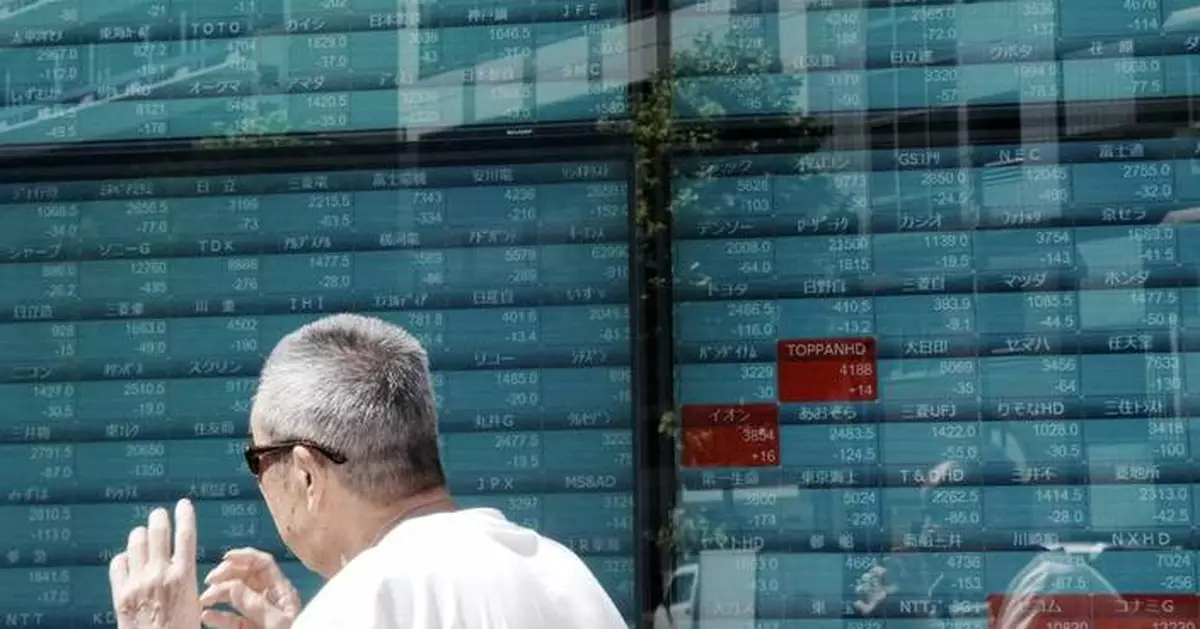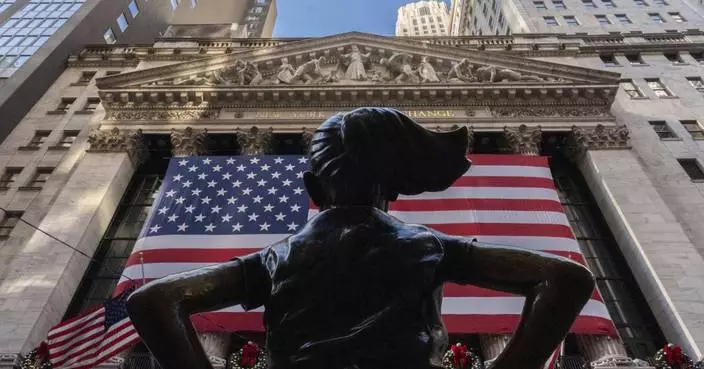Shares were mixed in Asia on Tuesday after the Dow Jones Industrial Average set a record as Wall Street geared up for Federal Reserve’s most anticipated meeting in years.
Tokyo’s Nikkei index fell 2% to 35,828.54 and the Hang Seng in Hong Kong advanced 1.4% to 17,661.70.
Markets in mainland China and South Korea were closed.
Australia's S&P/ASX 200 gained 0.3% to 8,143.00.
Traders are eagerly awaiting the Fed's decision Wednesday on interest rates, which it is expected to cut for the first time in more than four years. The U.S. central bank has been keeping rates high to tamp down inflation and the main question is how much relief for the economy the Fed will deliver.
“The warning is that markets steeped in rich policy expectations are ripe for volatility,” Mizuho Bank said in a commentary. “Accordingly, it may be best to be braced for (policy) curveballs that could potentially force market re-pricing.”
On Monday, the Dow rose 228 points, or 0.6%, to surpass its prior all-time high set a few weeks ago. It closed at 41,622.08.
The S&P 500 index, which is much more comprehensive and widely followed on Wall Street, ticked up by 0.1% to climb within 0.6% of its own record set in July, ending at 5,633.09.
The Nasdaq composite slipped 0.5% to 17,592.13 as big technology stocks and other market superstars gave back a bit of their big gains from recent years.
Most stocks rose, and Oracle’s 5.1% gain helped lead the market. The software company continued a strong run that began last week with a better-than-expected profit report.
Alcoa jumped 6.1% after saying it would sell its ownership stake in a Saudi Arabian joint venture to Saudi Arabian Mining Co. for $950 million in stock and $150 million in cash. But drops for some influential Big Tech stocks kept indexes in check. Apple fell 2.8% and Nvidia lost 1.9%. They’re among the market’s most influential stocks because they’re among the largest by market value.
Carl Icahn’s Icahn Enterprises rose 14.5% after it said a U.S. judge dismissed a proposed class-action lawsuit against the company, one based on allegations by a research firm that looks for financial irregularities at companies and tries to profit when the stock prices fall.
Fertilizer producer Mosaic fell 3.6% after it said electrical equipment failures at mines and Hurricane Francine will reduce its production of potash and phosphate in the current quarter.
Traders are shifting bets toward a larger-than-usual rate cut by the Fed of half a percentage point, according to data from CME Group. The difference between a half-point cut and a quarter may sound academic, but it can have far-ranging effects. Lower rates relieve pressure on the economy, but it can also fuel inflation.
Inflation has eased substantially from its peak two summers ago, and the Fed has said it can now focus on supporting the slowing job market and economy. Some critics say it may be moving too late, increasing the risk of a possible recession.
In other dealings, the dollar fell to 140.56 Japanese yen from 140.61 yen. The yen has risen with expectations that the Bank of Japan will persist in raising rates after keeping them near zero for years, although it is expected to stand pat at its policy meeting this week.
“The Bank of Japan’s upcoming policy meeting is expected to reaffirm its commitment to gradual rate hikes, which could further bolster the yen soon,” Luca Santos, currency analyst at ACY Securities, said in a commentary.
The euro slipped to $1.1127 from $1.1135.
U.S. benchmark crude oil rose 49 cents to $70.58 a barrel. Brent crude, the international standard, picked up 32 cents to $73.07 a barrel.
AP Business Writer Stan Choe contributed.
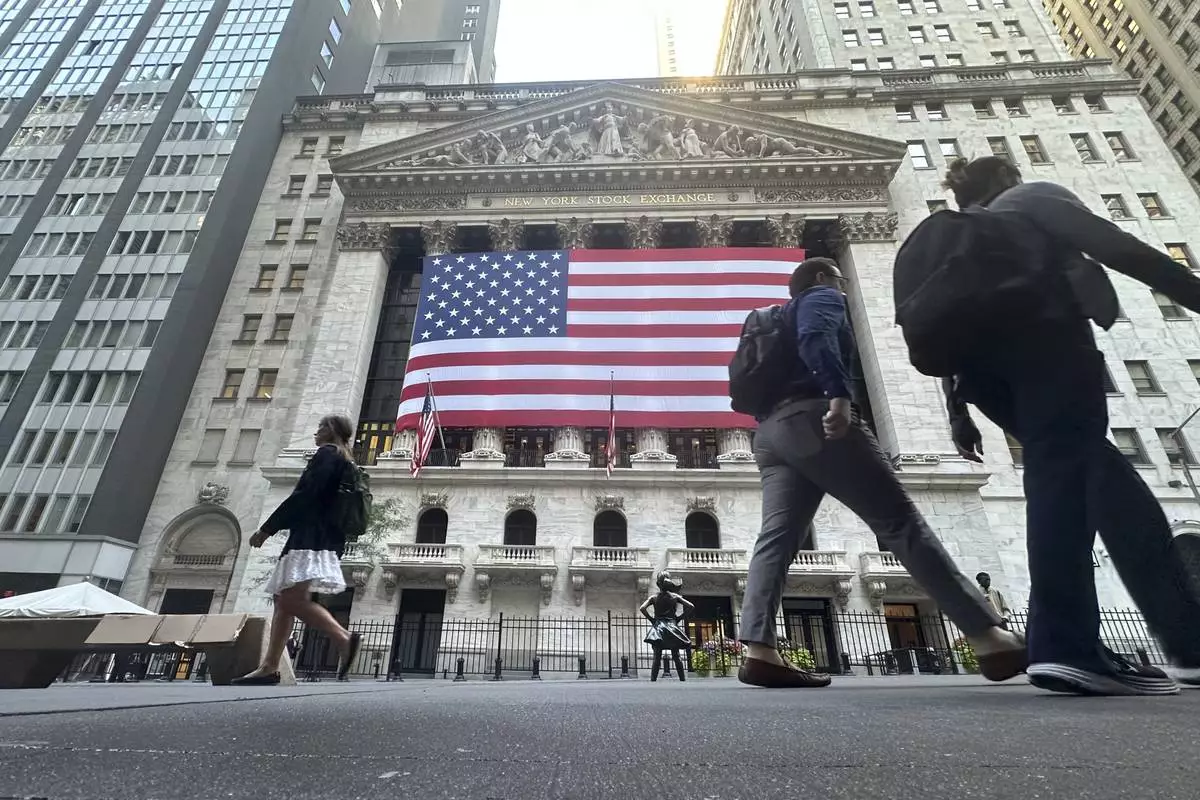
FILE - The American flag hangs from the front of the New York Stock Exchange on Sept. 10, 2024, in New York. (AP Photo/Peter Morgan, File)
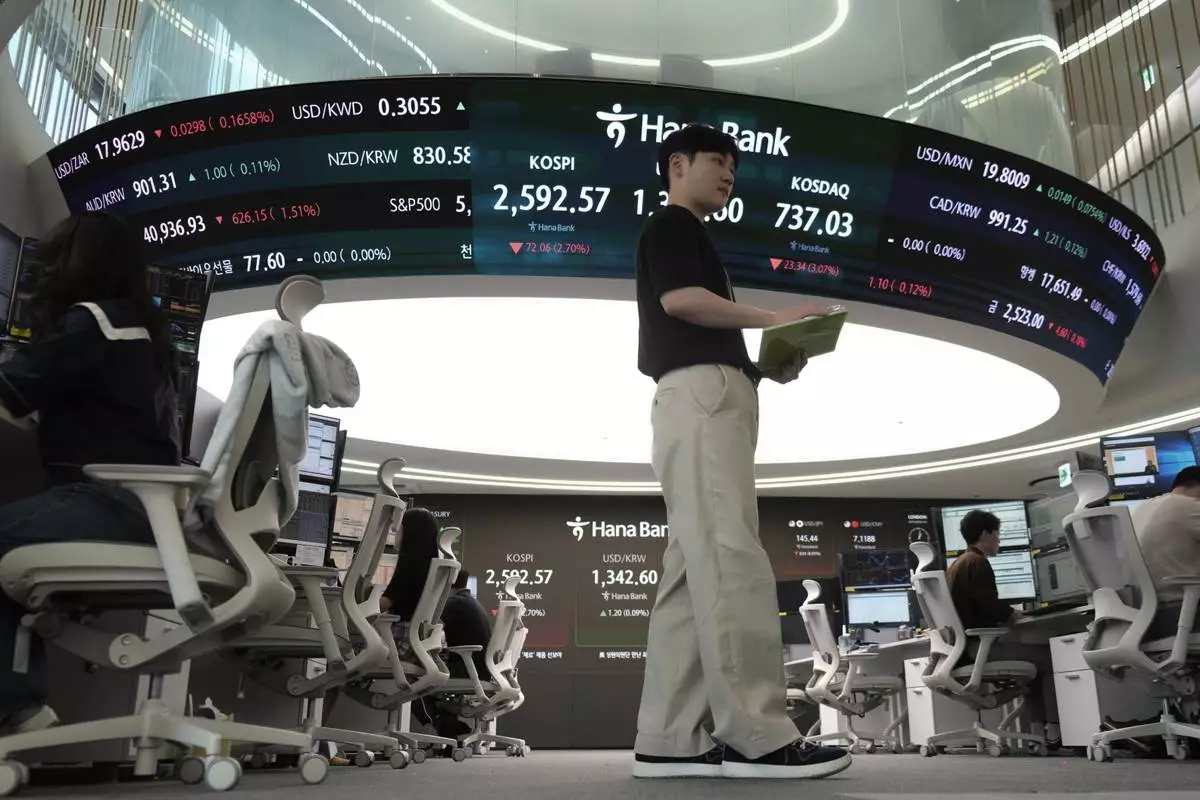
FILE - A currency trader passes by a screen showing the Korea Composite Stock Price Index (KOSPI), top center left, at the foreign exchange dealing room of the KEB Hana Bank headquarters in Seoul, South Korea, on Sept. 4, 2024. (AP Photo/Ahn Young-joon, File)
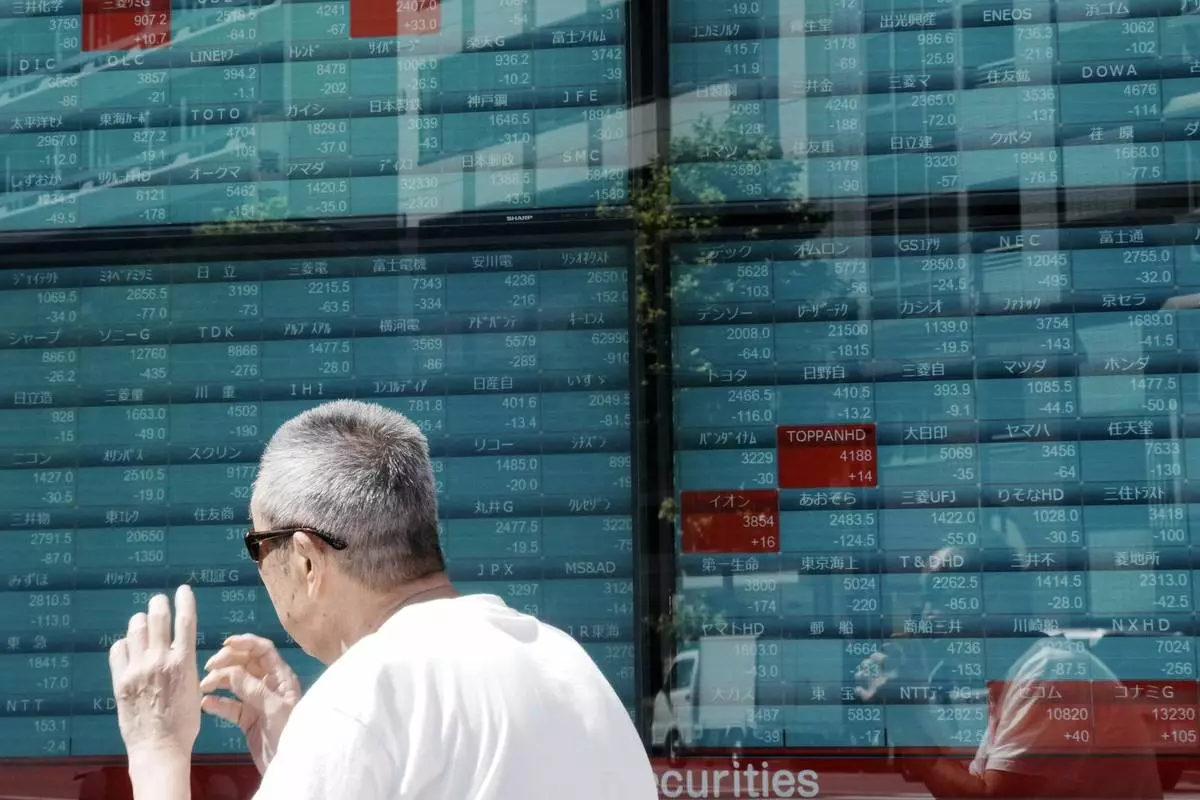
FILE - A person looks at an electronic stock board showing Japan's Nikkei index at a securities firm in Tokyo, on Sept. 9, 2024. (AP Photo/Eugene Hoshiko, File)


